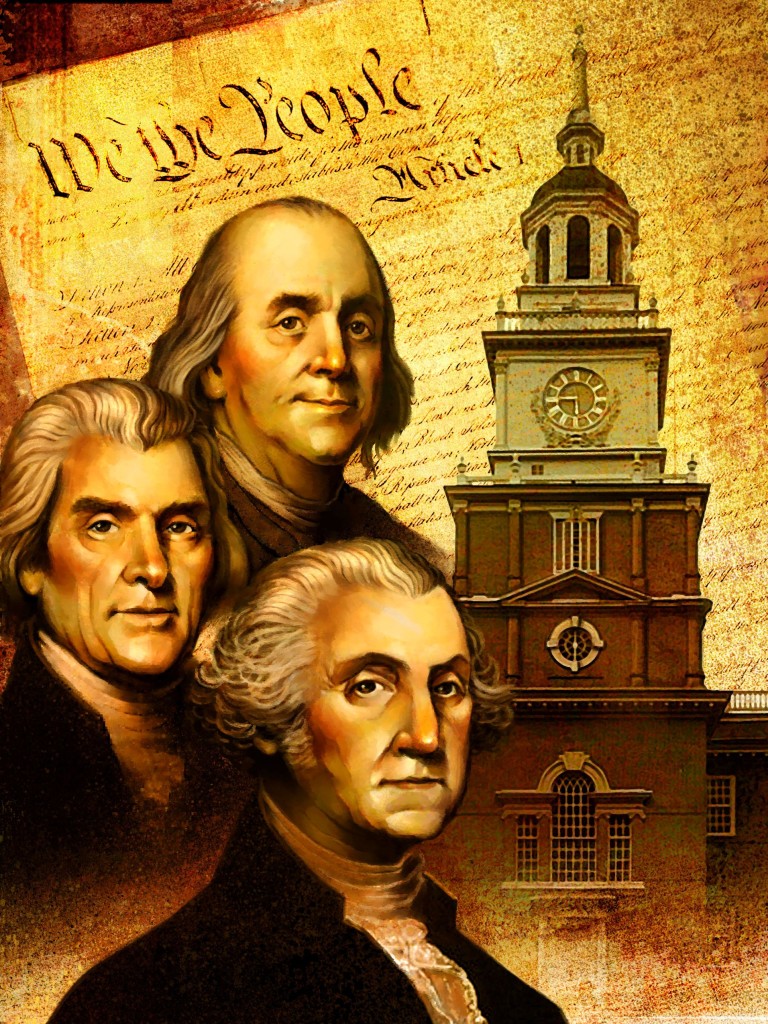13 Jul The Founding Fathers On Christianity, God & Religion
 The Founding Fathers of the United States are often referred to as a mixture of anti-clerical Christians (i.e. religious free-thinkers) and deists. In many ways, we might think of them all as laying the groundwork for what is now referred to as the Progressive Christianity movement—for they were leaders who possessed a solid sense of reason that was guided by an understanding of the divine nature of creation and their place in it. As such, they strongly demonstrated all the characteristics of the truly progressive Christian.
The Founding Fathers of the United States are often referred to as a mixture of anti-clerical Christians (i.e. religious free-thinkers) and deists. In many ways, we might think of them all as laying the groundwork for what is now referred to as the Progressive Christianity movement—for they were leaders who possessed a solid sense of reason that was guided by an understanding of the divine nature of creation and their place in it. As such, they strongly demonstrated all the characteristics of the truly progressive Christian.
In the coming weeks, we will be writing a series of posts on the religion of America’s Founding Fathers, which will feature passages from Thomas Jefferson, Benjamin Franklin, Thomas Paine, John Adams, and other early Americans, on the subjects of Christianity, God, and Religion. To get the ball rolling, let’s begin with the following passage from Thomas Jefferson, taken from a letter to Moses Robinson, the governor of the Vermont Republic who helped usher Vermont to statehood.
In this passage we find Jefferson commenting on the Christian clergy, the Church, and the State, comments which still are very relevant today. Jefferson’s hope that “good sense” will prevail among orthodox Christians is unfortunately still waiting to be realized:
The Eastern States will be the last to come over, because of the dominion of the clergy, who had got a smell of union between Church and State, and began to indulge in reveries that can never be realized in the age of science. If, indeed, they could have prevailed on us to view all the advances in science as dangerous innovations, and to look back to the opinions and practices of our forefathers, instead of looking forward, for improvement, a promising groundwork would have been laid.
But I have hopes that their good sense will show them that since the mountain will not come to them, they had better go to the mountain: that they will find it in their interest to acquiesce to the liberty and science of their country, and that the Christian religion, when divested of the rags in which they have enveloped it, and brought to the original purity and simplicity of its benevolent institutor, is a religion most friendly to liberty, science, and the freest expansion of the human mind.
I sincerely wish with you, we could see our government so secured as to depend less on the character of the person in whose hands it is trusted. Bad men will sometimes get in, and with such an immense patronage, may make great progress in corrupting the public mind and principles. This is a subject with which wisdom and patriotism should be occupied.1
—-
Read the next in the series: Benjamin Franklin’s Religion & Jesus of Nazareth.
- Some very small edits were made to above passage to make the reading easier for the contemporary reader [↩]
